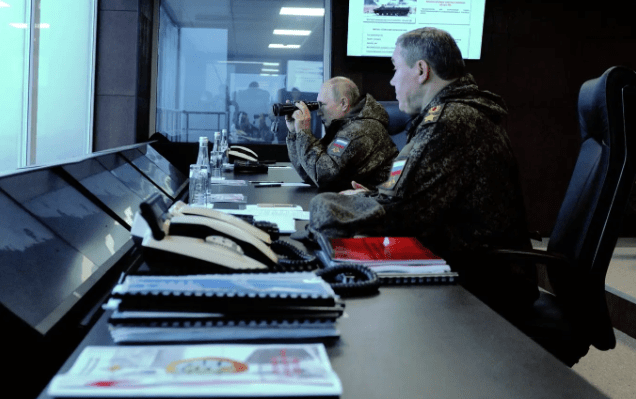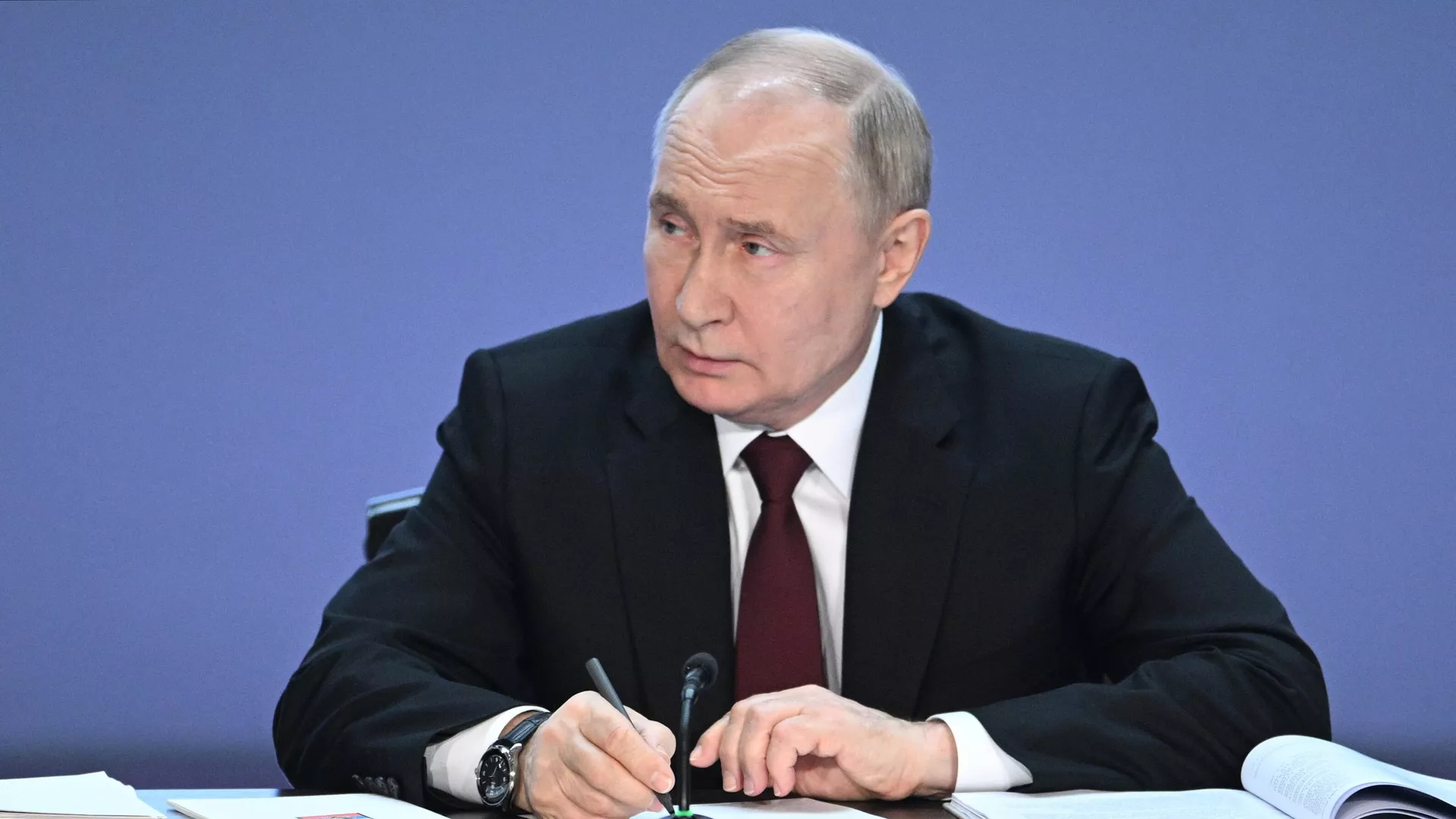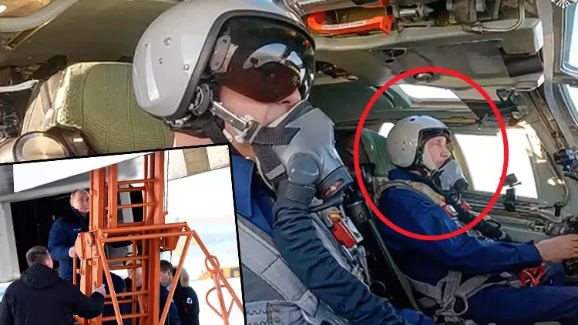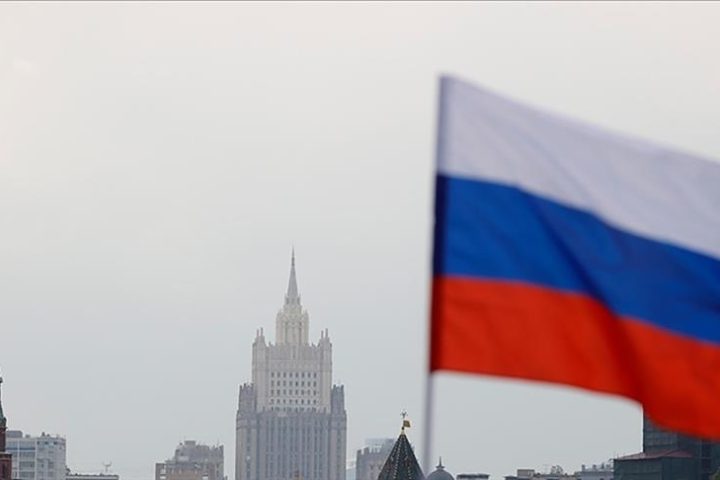In a short speech, the Kremlin leader paints a picture of a country whose very existence is threatened, justifying the unpopular decision to partially mobilize. The regime’s survival depends above all on its repressive apparatus.
For one evening, Russian President Vladimir Putin had kept TV viewers waiting, fueling a host of rumors and speculation. Some of them came true on Wednesday morning, when the Kremlin leader’s pre-recorded quarter-hour speech was broadcast after all. The most important message in it was that Putin announced a partial mobilization of Russia’s armed forces, which began later Wednesday.
For the time being, this does not change the “special operation”, the attack on Ukraine that took place on February 24. Officially, it is still not a war with all its legal consequences. Practically, however, it is an admission that Russia has reached its limits with its previous means. The “special operation” takes on the character of a war.
Accusations of “nuclear blackmail
He and, shortly after him, Defense Minister Sergei Shoigu justified the necessity of this far-reaching step by saying that the Russian army was no longer fighting against Ukraine alone, but against the “collective West” or NATO. This, he said, involved not only equipping it with modern Western weapons systems, but also supporting it with satellite reconnaissance and military advice.
In haltingly delivered answers to questions from a television journalist, Shoigu presented this as if the Ukrainian army were now led by NATO commanders. For the first time since March, he also gave a figure for those killed by the regular armed forces: 5937. Foreign observers assume a much higher number, especially since members of other security agencies are also affected. The Ukrainians, on the other hand, had lost 61,000 soldiers and suffered 31,000 casualties, Shoigu stated. Putin glossed over what had been achieved so far by not mentioning the defeat at Kharkiv. Instead, he spoke of the Luhansk “People’s Republic” being almost entirely “liberated,” and admitted that the fight in Donetsk and along the long front line was very tough.
He claimed one more time that the West’s goal was to destroy, crush, and rob Russia. What happened to the Soviet Union in 1991, the West now wants to repeat with the Russian Federation. To this end, Ukraine has been chosen since 2014 to become a deployment area against Russia and whose population serves the West as cannon fodder. In the negotiations between Russia and Ukraine in the spring, the West had prevented a success so that it could continue to wage war.
Therefore, he said, it was a matter of guaranteeing the security, territorial integrity and existence of Russia. Putin spoke of “nuclear blackmail” by the West, including the claim that Russia is threatened with nuclear weapons. He said that those who do so must know that Russia has state-of-the-art nuclear weapons and is prepared to use all available means to defend its territorial integrity and sovereignty: “This is not a bluff,” he said. The wind rose could also be directed against those from whom the blackmail emanates, he added.
Against the backdrop of the likely incorporation of the Donbass and the conquered territories in southeastern Ukraine, this threat takes on special weight: these territories will be treated by the Kremlin as Russian territory. Putin’s intention is probably to use this threat to force the West and Ukraine to refrain from further arms deliveries and further fighting.
Succor for the “plebiscites”
Putin repeated the horror and distorted image of a neighboring country ruled by a fearsome, “neo-Nazi regime.” Terror against those in the civilian population who disagree with that rule has increased, he said, and is taking on ever more barbaric forms. This is becoming increasingly evident from reports from the recaptured areas near Kharkiv. From the very beginning, the “special operation” had been about giving the inhabitants of Ukraine, primarily in the areas he called “historic Russia,” the opportunity to decide their own fate.
Russia would therefore help to ensure the security of the announced referendums in the “people’s republics” of Donetsk and Luhansk, as well as in the occupied parts of the Kherson and Zaporizhia regions, and support any outcome. The population there should not be left to the executioners; that is Russia’s moral obligation, he said. Thus, it can be assumed that Russia will fulfill the “wish” of these entities and incorporate them into the Federation.
Because it is now a question of fighting not only against “neo-Nazi formations” but also against Western troops on the front line, which is several thousand kilometers long, the partial mobilization of the Russian army is appropriate. For the time being, 300,000 reservists who have already done military service and have specialization and experience are to be called up.
Explicitly excluded are recruits and students who have deferments for the period of their studies. Those who are called up are to be put on an equal footing with professional soldiers and receive additional training before being deployed to a war zone. However, the decree signed by Putin and the legislation leave much room for arbitrary expansion of partial mobilization.
Deployment is primarily about securing the front lines and the conquered territories, Shoigu said. The question remains, however, how effectively the reservists will be able to take on these tasks. The army’s supply situation is desolate, and the motivation of those called up is likely to be very low. Those who have a positive attitude toward the “special operation” and were ready for deployment have probably long since signed up for the volunteer units; these are now also to be put on an equal footing with the contract soldiers.
Not without reason, the State Duma whipped through legislative tightening on Tuesday that makes desertion, refusal to serve and failure to show up for enlistment “in times of mobilization and martial law” punishable by heavy prison terms. This is the regime’s involuntary admission that the majority of the population is not really behind the war policy and is unwilling to sacrifice themselves and their loved ones for it.
War reaches the center of society
Many commentators had therefore considered it unlikely until recently that Putin would even resort to the step of partial mobilization. This would entail the risk of great discontent among the population. The fact that he is now doing so anyway, and that at the same time the “collected earth” in Ukraine is to be hastily connected to Russia, shows what a hopeless situation Putin has led his regime and his country into with the decision to wage a war of aggression. The new orders are an act of desperation.
This regime is able to hold on to power thanks to the brutal suppression of any opposition and any deviation from the official course, which has become more and more widespread over the past year and a half. However, the emphasis on fighting the external enemy, the West, also proves that the actual Ukraine narrative has also been exhausted. Propagandists on state television, on the other hand, hailed the measures as overdue and described how the West now has no chance in this struggle.
With the partial mobilization, the last illusion is lost that this war affects Russia’s society at most on the margins. It is now reaching Russian families who are not at home in distant republics or remote regions. Announced anti-war actions are likely to have a hard time in view of the de facto ban on rallies. On Wednesday, it was reported that shortly after Putin’s speech, all airline tickets to countries that Russians can reach without a visa were sold out.





